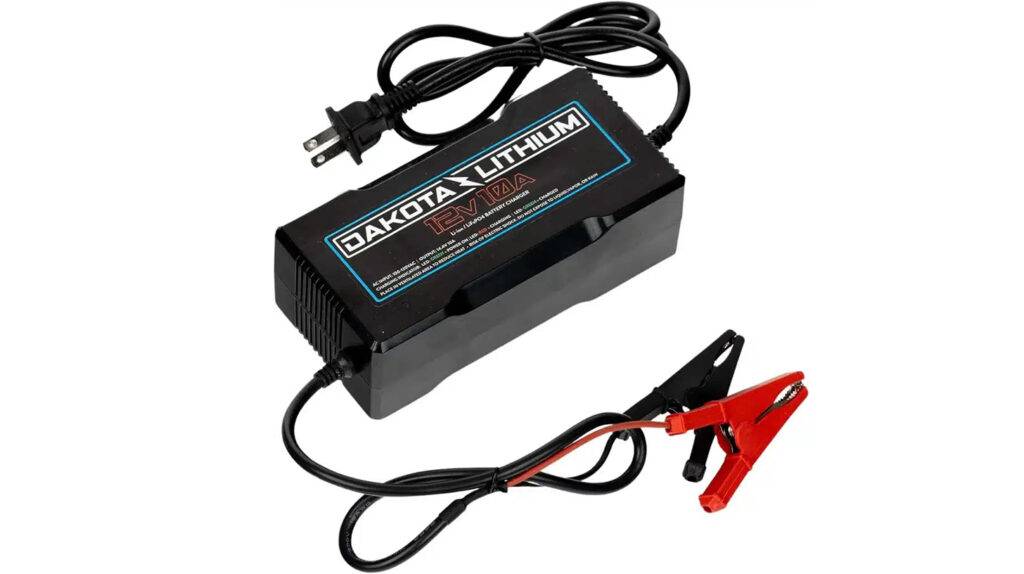Selecting the right 12V lithium battery charger is crucial for maintaining battery health and ensuring optimal performance. With various options available, understanding the key features and specifications can help you make an informed decision. This guide covers everything you need to know about choosing the best charger for your needs.
What Are the Key Features to Look for in a 12V Lithium Battery Charger?
When choosing a 12V lithium battery charger, consider the following essential features:
- Compatibility: Ensure the charger is specifically designed for lithium batteries (LiFePO4) to avoid damage.
- Charging Current: Look for chargers with adjustable current settings to match your battery’s capacity.
- Smart Charging Technology: Chargers with built-in microprocessors can optimize charging cycles and prevent overcharging.
- Safety Features: Features like overcharge protection, temperature monitoring, and short-circuit protection are vital for safe operation.
Chart: Key Features of Lithium Battery Chargers
| Feature | Importance |
|---|---|
| Compatibility | Must match lithium battery specifications |
| Charging Current | Should align with battery capacity |
| Smart Technology | Optimizes charging and protects battery health |
| Safety Features | Prevents overcharging and enhances safety |
How Do Different Types of 12V Lithium Battery Chargers Compare?
There are several types of chargers available for 12V lithium batteries:
- Standard Chargers: Basic chargers that provide a constant voltage and current but lack advanced features.
- Smart Chargers: Equipped with microprocessor control to adjust charging based on battery status, ensuring optimal performance.
- Trickle Chargers: Designed for maintaining charge levels over long periods without overcharging.
- Solar Chargers: Ideal for off-grid applications, allowing you to charge batteries using solar energy.
Chart: Comparison of Charger Types
| Charger Type | Features | Best For |
|---|---|---|
| Standard Charger | Basic charging capabilities | General use |
| Smart Charger | Adjustable settings and monitoring | Optimal performance |
| Trickle Charger | Maintains charge without overcharging | Long-term storage |
| Solar Charger | Utilizes solar energy | Off-grid applications |
Why Is Charging Current Important When Choosing a Charger?
The charging current affects how quickly your battery charges:
- Match Current to Capacity: A charger should ideally provide a current that is around 0.2C to 0.5C of the battery’s capacity (e.g., for a 100Ah battery, a current of 20A to 50A is suitable).
- Faster Charging: Higher current chargers can reduce charging time but may generate more heat; thus, they should have adequate cooling mechanisms.
- Battery Health: Consistently using a charger with too high of a current can lead to reduced battery lifespan.
Chart: Charging Current Guidelines
| Battery Capacity (Ah) | Recommended Charging Current (A) |
|---|---|
| 50 | 10 – 25 |
| 100 | 20 – 50 |
| 200 | 40 – 100 |
What Safety Features Should You Look For?
Safety features are crucial when selecting a charger to protect both the charger and the battery:
- Overcharge Protection: Prevents the charger from supplying power once the battery is fully charged.
- Temperature Monitoring: Adjusts charging based on temperature to prevent overheating.
- Short-Circuit Protection: Safeguards against accidental short circuits during use.
Chart: Essential Safety Features
| Safety Feature | Description |
|---|---|
| Overcharge Protection | Stops charging when full |
| Temperature Monitoring | Adjusts output based on heat levels |
| Short-Circuit Protection | Prevents damage from accidental shorts |
How Can You Ensure Compatibility with Your Lithium Battery?
To ensure compatibility between your charger and lithium battery:
- Check Voltage Rating: Confirm that the charger’s output voltage matches your battery’s nominal voltage (e.g., 12V).
- Review Manufacturer Specifications: Always refer to the manufacturer’s guidelines for both the charger and the battery.
- Consult User Reviews: Look for feedback from other users regarding compatibility issues or successes.
Chart: Compatibility Checklist
| Item | Check |
|---|---|
| Voltage Rating | Must match nominal voltage |
| Manufacturer Specs | Follow guidelines provided |
| User Reviews | Seek feedback on compatibility |
Industrial News
The market for lithium battery chargers is evolving rapidly due to advancements in technology and increasing demand for electric vehicles and renewable energy solutions. Manufacturers are focusing on developing smart chargers that optimize performance while ensuring safety during charging processes. As more consumers transition to lithium batteries, understanding how to choose the right charger becomes increasingly important.
Redway Expert Insights
“Choosing the right charger is essential for maximizing the lifespan and performance of your lithium batteries,” states an expert from Redway Battery. “With advancements in smart charging technology, users can now enjoy greater efficiency and safety, making it easier than ever to maintain their energy storage systems.”
FAQ Section
Can I use any charger for my lithium battery?
No, always use chargers specifically designed for lithium batteries to avoid damage.What happens if I use a lead-acid charger on a lithium battery?
Using a lead-acid charger can lead to overcharging and potential damage or failure of the lithium battery.How do I know which charger is suitable for my needs?
Check your lithium battery specifications and choose a charger that matches its voltage and current requirements.



